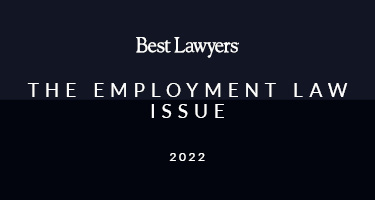By: Kathy O'Neill, Wesley Payne, Jerry Anders and Andy Susko
On November 22, 2013, the Pennsylvania Supreme Court issued an opinion in Tooey v. AK Steel Corp., et al., holding that the exclusivity provision of the Workers Compensation Act (“the Act”) does not apply to common law third-party claims made by employees for occupational diseases which manifest outside of the 300-week period prescribed by Section 301(c)(2) of the Act. Before this week, employers were protected by the Act's exclusivity provision from third-party claims by employees. The Supreme Court's decision in Tooey ended that protection in latent disease cases. [1]
This ruling overturns recent Pennsylvania Superior Court decisions upholding the exclusivity provision of Section 303(a) of the Act in latent disease cases, and exposes companies who own, or have owned, manufacturing and other plants in Pennsylvania to third-party liability for latent disease claims made by their former employees, including claims for asbestos-related diseases and latent diseases resulting from workplace exposure to chemicals and other substances.
Tooey involved consolidated appeals of two Plaintiffs exposed to asbestos during the course of their employment who developed mesothelioma more than a decade after the conclusion of that employment. They filed lawsuits against multiple defendants, including their employers, and the employers filed motions for summary judgment asserting the exclusivity provision of the Act. [2] The trial court denied the employers’ motions for summary judgment, and, on interlocutory appeal, the Superior Court reversed, based upon its precedent upholding employer immunity under the exclusivity provision of the Act.
The Pennsylvania Supreme Court adopted the Plaintiffs’ argument that: (1) an occupational disease which first manifests more than 300 weeks after the last occupational exposure to the hazards which allegedly caused the disease does not fall within the definition of injury set forth in the Act, (2) therefore, compensation under the Act does not apply to employees seeking compensation for such diseases; and (3) accordingly, the exclusivity provision of Section 303(a) does not preclude an employee from seeking recovery for such disease through a common law action against an employer. Thus, the Supreme Court reversed the Superior Court and overturned its precedent.
This decision constitutes a major shift in Pennsylvania law. It significantly increases plant owners’ potential exposure to liability to their employees for latent diseases, and raises coverage issues under general liability and Workers’ Compensation insurance policies.
For more information regarding this News Alert, please contact Kathy O’Neill (215-864-7172; oneillk@whiteandwilliams.com), Wesley Payne (215-864-7076; paynew@whiteandwilliams.com), Jerry Anders (215-864- 7003; andersj@whiteandwilliams.com), or Andy Susko (217-864-6228; suskoa@whiteandwilliams.com)
[1] Section 301(c)(2) of the Act provides, in pertinent part:
The terms “injury,” “personal injury,” and “injury arising in the course of his employment,” as used in this act, shall include . . . occupational disease as defined in Section 108 of this act [i.e., 77 P.S. § 27.1]: Provided, That whenever occupational disease is the basis for compensation, for disability or death under this act, it shall apply only to disability or death resulting from such disease and occurring within three hundred weeks after the last date of employment in an occupation or industry to which he was exposed to hazards of such disease: And provided further, That if the employee’s compensable disability has occurred within such period, his subsequent death as a result of the disease shall likewise be compensable.
Tooey, Slip Op. at 7-8, quoting 77 P.S.§ 411(2) (emphasis added by Supreme Court).
[2] Section 303(a) of the Act provides:
The liability of an employer under this act shall be exclusive and in place of any and all other liability to such employees, his legal representative, husband or wife, parents, dependents, next of kin or anyone otherwise entitled to damages in any action at law or otherwise on account of any injury or death as defined in section 301(c)(1)) and (2) or occupational disease as defined in section 108.
Tooey, Slip Op. at 5, n.2 quoting 77 P.S. § 481(a)
























